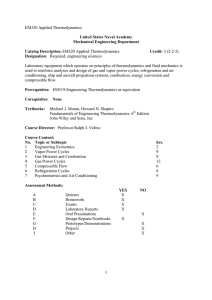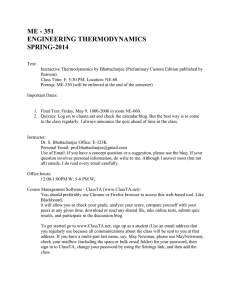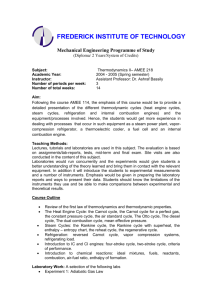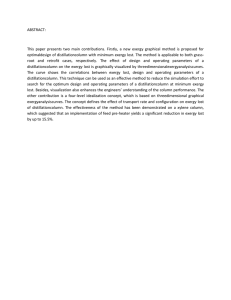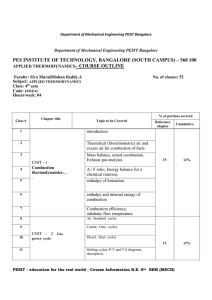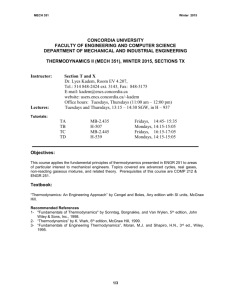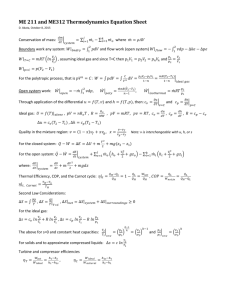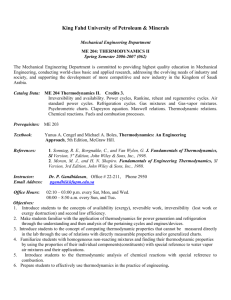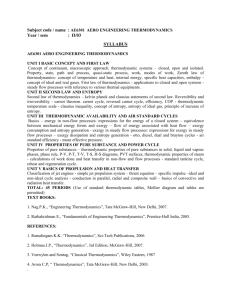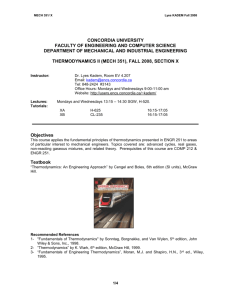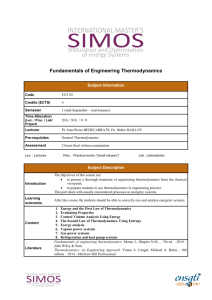MET 3402 – Thermodynamics 2
advertisement
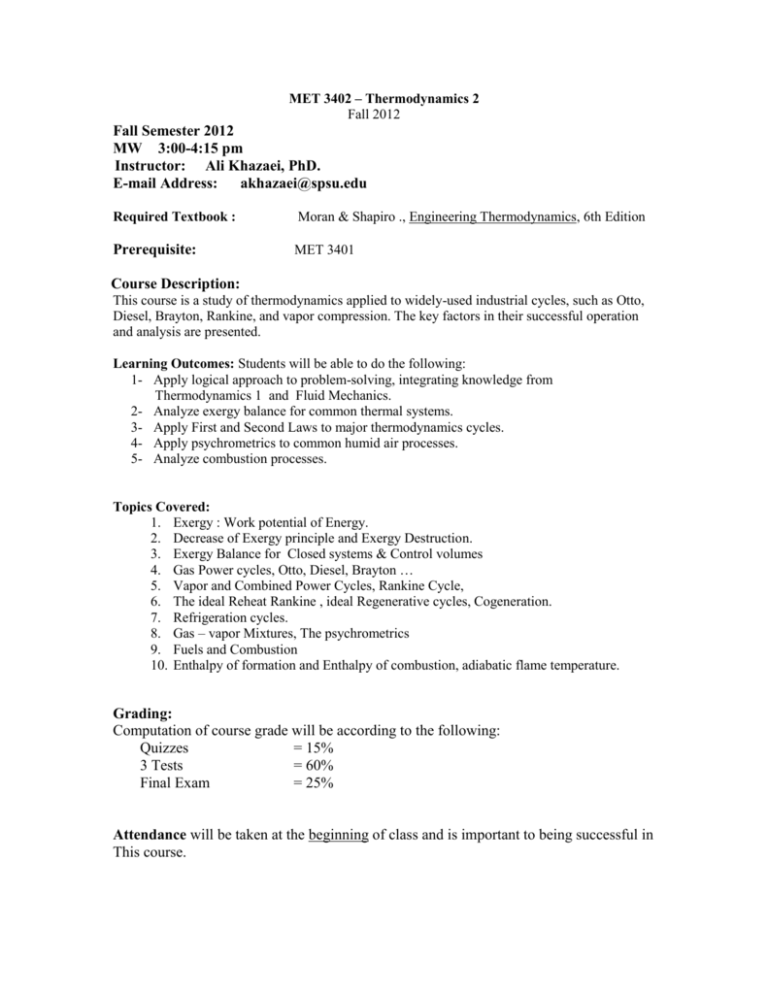
MET 3402 – Thermodynamics 2 Fall 2012 Fall Semester 2012 MW 3:00-4:15 pm Instructor: Ali Khazaei, PhD. E-mail Address: akhazaei@spsu.edu Required Textbook : Moran & Shapiro ., Engineering Thermodynamics, 6th Edition Prerequisite: MET 3401 Course Description: This course is a study of thermodynamics applied to widely-used industrial cycles, such as Otto, Diesel, Brayton, Rankine, and vapor compression. The key factors in their successful operation and analysis are presented. Learning Outcomes: Students will be able to do the following: 1- Apply logical approach to problem-solving, integrating knowledge from Thermodynamics 1 and Fluid Mechanics. 2- Analyze exergy balance for common thermal systems. 3- Apply First and Second Laws to major thermodynamics cycles. 4- Apply psychrometrics to common humid air processes. 5- Analyze combustion processes. Topics Covered: 1. Exergy : Work potential of Energy. 2. Decrease of Exergy principle and Exergy Destruction. 3. Exergy Balance for Closed systems & Control volumes 4. Gas Power cycles, Otto, Diesel, Brayton … 5. Vapor and Combined Power Cycles, Rankine Cycle, 6. The ideal Reheat Rankine , ideal Regenerative cycles, Cogeneration. 7. Refrigeration cycles. 8. Gas – vapor Mixtures, The psychrometrics 9. Fuels and Combustion 10. Enthalpy of formation and Enthalpy of combustion, adiabatic flame temperature. Grading: Computation of course grade will be according to the following: Quizzes = 15% 3 Tests = 60% Final Exam = 25% Attendance will be taken at the beginning of class and is important to being successful in This course. Homework will be assigned on a weekly/topic basis. Some homework problems will be chosen by the instructor and collected on each test for bonus points. Students with disabilities who believe that they may need accommodations in this class are encouraged to contact the counselor working with disabilities at (770) 528-7226 as soon as possible to better ensure that such accommodations are implemented in a timely fashion. A display of academic dishonesty, as defined in the general catalog, will result in the most severe actions possible.
